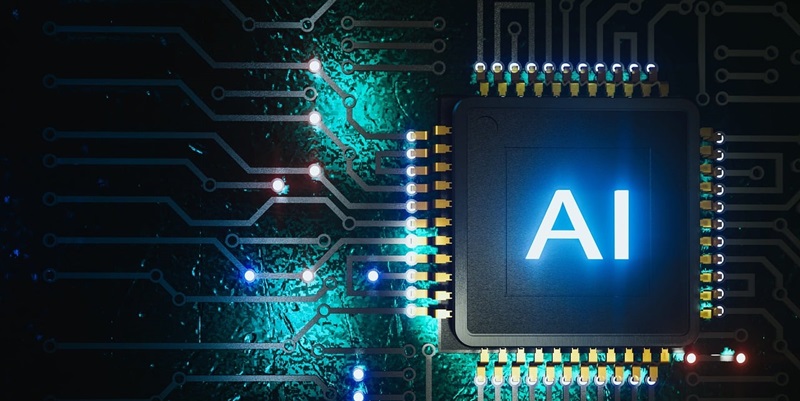In a remarkable development within artificial intelligence (AI), recent advancements have led to AI models successfully solving CAPTCHA puzzles with 100% accuracy. CAPTCHA, which stands for “Completely Automated Public Turing test to tell Computers and Humans Apart,” has long been a trusted method for distinguishing human users from bots across the web. This breakthrough calls into question the future effectiveness of CAPTCHA, necessitating new security measures for the digital world.
The Role and Evolution of CAPTCHA
For years, CAPTCHA has functioned as a reliable digital gatekeeper by presenting users with tasks like identifying blurry images of traffic lights or interpreting distorted text. These seemingly simple tasks for humans have historically posed a significant challenge to automated systems, playing a crucial role in maintaining the security and integrity of various online platforms. However, the landscape is shifting in unexpected ways. A notable AI model, YOLO (You Only Look Once), has now achieved the ability to solve these puzzles perfectly, disrupting the longstanding belief in CAPTCHA’s infallibility.
This leap in AI capabilities puts the reliability of CAPTCHA at considerable risk. Websites that depend heavily on these tests to fend off bots may find themselves newly exposed to automated intrusions, a vulnerability that could lead to significant online security breaches. The implications of this development are vast, ranging from an increase in spam and unauthorized data scraping to the potential for more severe cyberattacks. As CAPTCHA’s effectiveness wanes, the need for revisited or entirely new security measures has become paramount, highlighting the ever-present cat-and-mouse game between security developers and malicious actors.
The Irony of AI Training and CAPTCHA
An interesting twist in this narrative is how CAPTCHA has occasionally been used to train AI systems, ultimately contributing to both its own obsolescence and the sophistication of AI technologies. Historically, users completing CAPTCHA tasks have helped machines learn to recognize distorted text and blurry images, thus refining AI’s reading capabilities. The irony here is palpable: the very AI technologies that CAPTCHA helped train are now sophisticated enough to neutralize its effectiveness, cracking the puzzles flawlessly and rendering this once-robust security measure nearly obsolete.
Many websites have integrated CAPTCHA deeply into their overall security frameworks, employing it not just for login defenses but also for enhancing encryption and data collection methods. More advanced versions, like Google’s reCAPTCHA, attempt to stay ahead by building nuanced profiles of user behavior patterns to differentiate humans from bots. Despite this multifaceted and increasingly sophisticated approach, the unmatched accuracy of modern AI models like YOLO poses a significant challenge to even these enhanced systems. The rapid evolution of AI underscores the pressing need for innovative security measures that can adapt and respond to these growing capabilities.
Security Implications of AI Bypassing CAPTCHA
If AI models can bypass CAPTCHA unerringly, the resulting vulnerabilities could be substantial and far-reaching. With bots able to access websites and services seamlessly, there could be an unprecedented increase in cases of spam, unauthorized data scraping, and, in the most severe scenarios, sophisticated cyberattacks that operate without the preventive barriers CAPTCHA once afforded. This emerging reality suggests that the digital gatekeeper’s role in online security must evolve to stay ahead of AI’s burgeoning capabilities threatening online safety.
The online security landscape now faces a formidable challenge, as the once-reliable defenses provided by CAPTCHA crumble under the weight of advanced AI. Innovations in AI technology demand a reevaluation and overhaul of existing security protocols, necessitating new and more adaptive methods to maintain robust online defenses. Security experts and developers are already exploring potential alternatives to traditional CAPTCHA, such as behavioral biometrics and other advanced verification methods, to ensure continued protection against automated cyber threats. The urgency to innovate and adapt has never been more critical.
The Urgent Need for New Security Measures
The pace at which AI technology is advancing highlights how quickly digital safeguards can become obsolete, rendering once-effective measures inadequate in the face of evolving threats. This reality underscores an urgent need for continuous innovation in online security protocols. What was once a cornerstone of online defenses can no longer be relied upon unconditionally, demanding the development of new, more resilient methods. The article’s discussion suggests that future security measures must not only be innovative but also adaptive, capable of evolving rapidly to address new types of threats effectively.
The speed of technological change means that security protocols must be able to keep up with and outpace these developments, safeguarding user data and maintaining the integrity of online platforms. The technological landscape’s rapid evolution calls for a forward-thinking approach to security, one that recognizes and addresses the complex, constantly shifting relationship between AI capabilities and digital safeguards. As security experts continue to explore alternative measures, it becomes clear that the future demands security innovations that can endure the challenges posed by advancing AI technologies.
Reflecting on Technological Progress and Future Security
Recent advancements in artificial intelligence have achieved a significant milestone: AI models are now capable of solving CAPTCHA puzzles with perfect accuracy. CAPTCHA, which stands for “Completely Automated Public Turing test to tell Computers and Humans Apart,” has been a cornerstone in web security, effectively differentiating human users from automated bots for years. However, this breakthrough poses a serious challenge to the future efficacy of CAPTCHA systems. As AI continues to evolve, its increasing capabilities necessitate the development of new security measures to safeguard the digital landscape. The implications are far-reaching, prompting a reassessment of existing methods to ensure the integrity and security of online interactions. This advancement in AI technology underscores the urgent need for innovative solutions that can adapt to rapidly changing environments. The traditional CAPTCHA, once a reliable barrier, may soon become obsolete, urging cybersecurity experts to explore more sophisticated alternatives. As we stand on the brink of this new era, the digital world must evolve to counter these emerging threats effectively.

